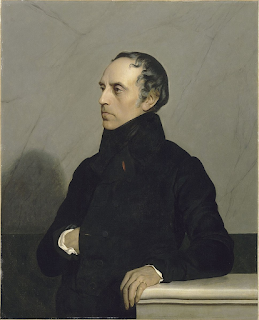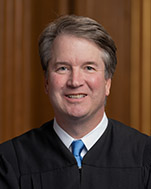The Citizen King and the Road to the Last Revolution
If this goes well I might post a more detailed and disciplined revision later.
The year 1848 is known as Springtime of Nations, when nationalism (glorified racism) sprouted among Europe’s empires as people demanded their government, the state, be centered around ethnicities and not necessarily royal families. A nation-state, if you will.
Western Europe already got the whole ethnonationalism thing figured out, but that didn’t stop France from having an identity crisis anyways. British colonial elites didn’t want to pay taxes, argued that the government ought to be by the people and of the people, and had a revolution. The French intellectuals thought that was swell and threw a revolution too. The idea of government for the people remains strong among the French intellectuals. Napoleon Bonaparte had proclaimed himself as Emperor of the French (people), not Emperor of (the state of) France. Following Bonaparte’s defeat, the French people only accepted a restoration of the House of Bourbon by shoving a Constitution down their throats. The Bourbon king Charles the X failed to understand this seachange and was ousted in 1830. Louis Philippe, Duke of Orléans, was proclaimed king by the Chamber of Deputies (the elected house in the French Parliament) in July due to his previous support for the original French revolution, liberal policies, and popularity with the masses.
Louis Philippe the Citizen King started off popular but became unpopular over time as he grew more and more conservative, especially as he elevated François Guizot in importance. Guizot was competent but deeply conservative and thus *hated* by the left. The French left increasingly believed in universal suffrage, that voting is a birthright, while conservatives like Guizot firmly believed that voters must prove their financial responsibility by being rich. He’s widely credited (though I’ve yet to find a primary source that says so) that in order to vote one should “enrich yourselves”, the 19th century equivalent of git gud lol. As industrialization progressed, the wealth gap grew. As it became ever more impossible to enrich oneself, so too did frustration with the regime grow.
The genius that is John Maynard Keynes hasn’t been born yet so Guizot and the conservatives aren’t completely at fault for running the economy laissez-faire. Nonetheless this made the economy vulnerable to shocks, which came in the form of a poor harvest in 1846. Although nowhere near as catastrophic as the Irish Potato Famine that happened in the same timeframe, the poor harvest nonetheless was the first domino to fall. Lack of food spiked food prices, which shrunk consumer spending elsewhere, which led to an overabundance of industrial products, which led to mass layoffs, which led to people cutting into their savings, which caused financial crises.
Guizot had passed a law in 1835 banning public assemblies to suppress dissent, which people overcame by turning occasions such as funerals and family banquets into political events. A coherent effort to use these banquets as a political campaign to push for greater enfranchisement was made in 1847, which fizzled out until King Louis Philippe’s hard line against any reform galvanized them once again. The United States standing as the most successful democratic republic at the time, a banquet/rally was organized for February 22nd, 1848 to celebrate Washington’s birthday. The explicit banning of that gathering caused unrest that would topple the monarchy altogether and create the Second French Republic.
Spoiler alert, the republic didn’t last. Join me next time to find out how, and more importantly, why?
Western Europe already got the whole ethnonationalism thing figured out, but that didn’t stop France from having an identity crisis anyways. British colonial elites didn’t want to pay taxes, argued that the government ought to be by the people and of the people, and had a revolution. The French intellectuals thought that was swell and threw a revolution too. The idea of government for the people remains strong among the French intellectuals. Napoleon Bonaparte had proclaimed himself as Emperor of the French (people), not Emperor of (the state of) France. Following Bonaparte’s defeat, the French people only accepted a restoration of the House of Bourbon by shoving a Constitution down their throats. The Bourbon king Charles the X failed to understand this seachange and was ousted in 1830. Louis Philippe, Duke of Orléans, was proclaimed king by the Chamber of Deputies (the elected house in the French Parliament) in July due to his previous support for the original French revolution, liberal policies, and popularity with the masses.
Louis Philippe the Citizen King started off popular but became unpopular over time as he grew more and more conservative, especially as he elevated François Guizot in importance. Guizot was competent but deeply conservative and thus *hated* by the left. The French left increasingly believed in universal suffrage, that voting is a birthright, while conservatives like Guizot firmly believed that voters must prove their financial responsibility by being rich. He’s widely credited (though I’ve yet to find a primary source that says so) that in order to vote one should “enrich yourselves”, the 19th century equivalent of git gud lol. As industrialization progressed, the wealth gap grew. As it became ever more impossible to enrich oneself, so too did frustration with the regime grow.
The genius that is John Maynard Keynes hasn’t been born yet so Guizot and the conservatives aren’t completely at fault for running the economy laissez-faire. Nonetheless this made the economy vulnerable to shocks, which came in the form of a poor harvest in 1846. Although nowhere near as catastrophic as the Irish Potato Famine that happened in the same timeframe, the poor harvest nonetheless was the first domino to fall. Lack of food spiked food prices, which shrunk consumer spending elsewhere, which led to an overabundance of industrial products, which led to mass layoffs, which led to people cutting into their savings, which caused financial crises.
Guizot had passed a law in 1835 banning public assemblies to suppress dissent, which people overcame by turning occasions such as funerals and family banquets into political events. A coherent effort to use these banquets as a political campaign to push for greater enfranchisement was made in 1847, which fizzled out until King Louis Philippe’s hard line against any reform galvanized them once again. The United States standing as the most successful democratic republic at the time, a banquet/rally was organized for February 22nd, 1848 to celebrate Washington’s birthday. The explicit banning of that gathering caused unrest that would topple the monarchy altogether and create the Second French Republic.
Spoiler alert, the republic didn’t last. Join me next time to find out how, and more importantly, why?
Portrait of François Guizot
Wikimedia Commons contributors, "File:Guizot, François - 2.jpg," Wikimedia Commons, https://commons.wikimedia.org/w/index.php?title=File:Guizot,_Fran%C3%A7ois_-_2.jpg&oldid=669448829 (accessed September 10, 2023).



Comments
Post a Comment